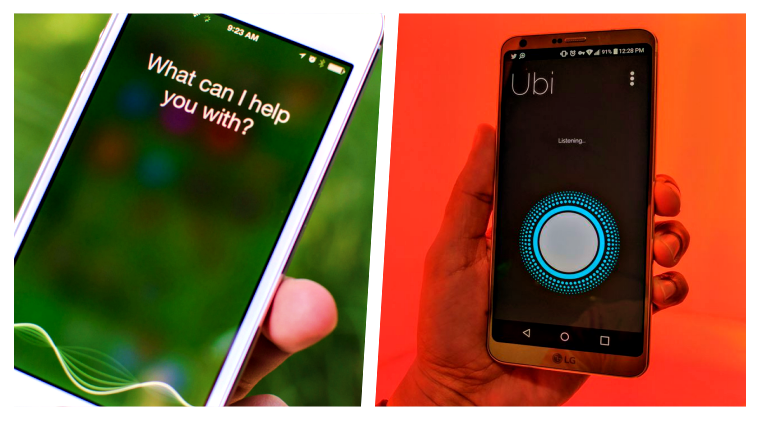How reliable are voice assistants?
Siri,你在竊聽我嗎?
Many of you may have used Siri, a voice assistant of US tech company Apple. You only have to say "hey Siri" and it will answer to your command. However, we may be sacrificing our privacy to enjoy this convenience.
許多人或許都用過美國科技公司蘋果所開發的語音助手Siri。只需呼喚一聲“嘿,Siri”,它便會聽從你的指示。但我們在享受這一便利的同時,或許正犧牲著個人隱私。
According to a recent report by the Guardian, Siri can be accidentally triggered and start recording private conversations, such as discussions between doctors and patients. Some of these recordings are then given to workers outside the company to review.
《衛報》近期的一篇報道稱,Siri能被偶然觸發,并開始記錄私人對話,如醫患之間的討論等。其中的一些錄音還會被提供給蘋果公司以外的員工進行分析。
Apple claimed the data was used to help Siri improve, but users were not informed of this measure in the first place.
蘋果公司稱這些數據是用于改進Siri,但用戶一開始對這一舉措并不知情。
Apple's Siri is not the only voice assistant to come under fire.
而遭到批評的語音助手并非只有蘋果的Siri。
In 2018, Alexa, a voice assistant developed by US tech company Amazon, recorded a private conversation between a couple and sent it to a stranger without their permission.
2018年,美國科技公司亞馬遜所開發的語音助手Alexa記錄下了一對夫婦的私人對話,并在未經夫妻倆允許的情況下,將這段對話發給了一個陌生人。
These issues deepened concerns that tech companies are infringing users' rights of privacy.
這些問題都加劇了公眾對于科技公司侵犯用戶隱私權的擔憂。
Many people have long feared that tech companies are listening and collecting data from private conversations, reported Forbes. Using this data, third party companies could then paint an accurate picture of users' habits and preferences in order to serve them more targeted advertisements, or even worse, sell this private data.
據《福布斯》雜志報道,一直以來許多人都很擔心科技公司正在竊聽私人對話,并從中收集數據。通過使用這些數據,第三方公司能夠精確地掌握用戶的習慣與偏好,為他們提供更有針對性的廣告,甚至售賣這些私人數據。

Despite this risk, the popularity of voice assistant seems to be unstoppable. According to a report by Ovum, a London-based research firm, there will be almost as many voice assistants on the planet as people by 2021.
盡管存在這一風險,但語音助手的流行趨勢卻似乎不可阻擋。據倫敦調查公司Ovum發布的一項報告顯示,到2021年,地球上語音助手的設備數量將接近全球人口總數。
"In the near future, everything from your lighting to your air-conditioning to your refrigerator, your coffee maker, and even your toilet could be wired to a system controlled by voice," commented The Atlantic.
“在不遠的未來,從燈光、空調、冰箱、咖啡機乃至洗手間,一切都會被接入一個語音控制系統,”《大西洋月刊》評論道。
Colin Horgan wrote on the blog site Medium that he believed people's daily lives will soon become a source of data.
科林·霍根在博客網站Medium上寫道,他認為人們的日常生活很快將變為一項數據來源。
"The sounds of our homes, the symphony of life – laughing, crying, talking, shouting, sitting in silence – will no longer be considered memories, but data," he wrote.
“我們家園的聲音,生活中的交響樂 —— 笑聲、哭聲、說話聲、叫喊聲、沉默地靜坐 —— 這些都將不再被視為回憶,而是成為了數據,”他寫道。
To deal with the issue, Blake Morgan, reporter for The Atlantic, believed that the answer is transparency.
《大西洋月刊》記者布萊克·摩根認為,解決這一問題的答案在于透明化。
"All companies need to have messaging ready to explain to customers what they do with private data," she wrote on The Atlantic.
“所有的公司都要準備好向顧客解釋私人數據用途的信息,”她在《大西洋月刊》上如此寫道。
Daniel Blair, CEO of a virtual reality startup in Canada, told CBC News that people can change settings and limit how often the device is active in their homes, and do some research before buying a device.
加拿大一家虛擬現實初創公司的總裁丹尼爾·布萊爾在接受加拿大廣播公司新聞頻道采訪時表示,人們可以修改設置,限制設備在家中的活躍頻率,并在購買設備之前進行一番調查。
"Even when we trust a company to protect our privacy ... we should consider what's being done behind the scenes and ask those holding the keys to help us understand it better," commented iMore, a Canada tech website.
“就算我們相信某家公司能夠保護我們的個人隱私……我們也應該考慮到背后所發生的事情,并讓掌握關鍵信息的人士幫助我們更好地理解這一切,”加拿大科技網站iMore評論道。













